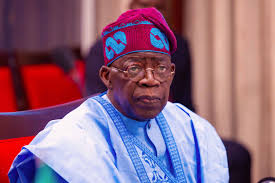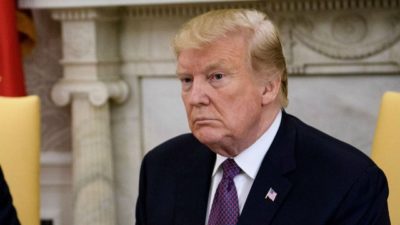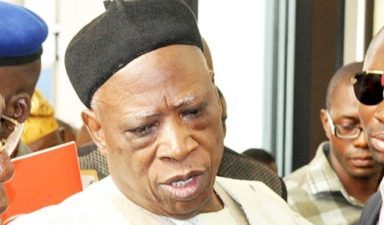By ABDULWAREES SOLANKE.
Voice of Nigeria
“The problem with our nation is the erosion of a national culture built on INTEGRITY, defined as an unimpaired character that stands public scrutiny demonstrated by a well-ordered private and public life devoid moral or material corruptibility.”
In my years of reporting politics, polity, and public policy from the days of the defunct ,*Concord Press of Nigeria* in the early 1990s, under masters like Messrs Tunji Bello. Sam Omatseye and Victor Ifijeh, our tradition was not to concentrate on political personalities alone but to focus on issues, forces, contexts, and interests that shape the political direction and throw up players and actors
So, we could accurately predict election outcomes. We could project victims of any political decision and we could tell who are likely to be game changers. We could also tell the harm a policy could inflict on a party or office holder.
Nonetheless, a government or leader that must make impact or deliver must be courageous to initiate policies and programmes of utilitarian dimensions, that is actions and policies that will bring greatest good to the greatest number of people, or in public interest.
That’s my definition of a responsible government, a government that is not hung on returning to power or winning a second or third term and so does not bother whether or not some interests will undercut him.
This is the time for such actions and indeed the time to demonstrate greater willpower in leading a responsible government.
After all, every responsible government acts in the interest of the public, as whatever a government chooses to do or not is the open definition of public policy. So, what policies must guide the government performance as President Tinubu rides into the last quarter of his first year office and in the next three years for it to occupy a prime place in the history of our nation?
Today, we blame our government and the leadership for every ill that plagues our land, expecting it to act with dispatch in public interest. Yet, if the government must act with the urgency and intensity we expect, it must necessarily abridge the diverse and often conflicting vested interests that have limited our ability to reach our full national potential. Therefore, it must step not only on the mighty cancerous toes causing extreme pains in our body polity but also crush the feeble viral fingers of susceptible criminal toddlers. The problem with our nation is the erosion of a national culture built on INTEGRITY, defined as an unimpaired character that stands public scrutiny demonstrated by a well-ordered private and public life devoid moral or material corruptibility. When integrity is asphyxiated in any polity, the essence of public service is lost as hedonism and pursuit of vested interests take over the instinct of virtually every stakeholder.
We all lament that our constitution is deficient in certain areas and advocate that our nation must be guided by the rule of law, yet we are not united around the core value of integrity that needs to be addressed for the protection of our collective national interest. We all cry for national rebirth or reform without appreciating the depth integrity deficit in our national polity. There are three dimensions to the compromise of this core value in Nigeria: Abdication of public service, professionalization and desecration of politics and celebration of corruption.The sin of abdication of public service is a product of desecration of the noble art of politics and condoning of corruption in public and private life in the country. Mahatma Gandhi, the man Indian deify as father of the nation, in 1925 illustrated these vices as politics without principle, wealth without work, pleasure without conscience, knowledge without character, commerce without morality, science without humanity and worship without sacrifice.
Our nation rates very high in all these disturbing indices, needing serious and collective intervention.
In discreet and practical terms, our government must make fundamental decisions that would produce radical changes in our culture of disdain. There is optimism that the various reform initiatives of the government will manifestly address these issues.
At the street level however, the understanding of reform is withdrawal of rights and privileges and curtailment of freedoms. Therefore, it induces trepidation and rejection. Yes, reform may seem punitive (and of course would ‘block’ some vested interests), its longer term goals and objectives are to ensure equilibrium in the society by expanding access to national wealth, ensuring provision of public goods and services and guaranteeing protection of life and properties of all citizens.
The kind of urgency we want the government to address the accumulated challenges demands the initiation and pursuit of radical reform policies that must definitely inconvenience many interest groups in implementation.
They will manifest in rigid state control, seeming over-regulation of public life with strong monitoring, compliance and deterrence strategies of enforcement that may be punitive in outlook.
Without being overly prescriptive, what our nation needs in this difficult moment is the regulation of our public life in a manner that does not cause extreme dislocation, neither does it induce devastating shock and glut or bottlenecks.
Since our first sin in Nigeria is the abdication of public service, we need a restoration of pride in public service through consolidation and alignment of the public sector with recognition, empowerment and reward of bureaucrats and technocrats who are invaluable to national growth and development but have suffered a high degree of de-motivation and insecurity in the recent past.
The pursuit of our national reform project must be real and tangible in its criminalization of corruption in all its ramifications.
It must of cause seek to de-professionalize political offices, but ensure that only citizens with impeccable record in public and private sector management are attracted into politics and public office “TO SERVE WITH INTEGRITY”.
The seed of our national reform should be in benchmarking our national core value on this vital index of good governance. Our reform agenda should be capable of exorcising the nation of the cardinal sins illustrated by Mahatma Gandhi.
In assuming public office and conducting public affairs, we must adhere to the Seven Principles of Public Life or the Nolan Principles: selflessness, integrity, objectivity, accountability, openness, honesty, and leadership.
Reforming Nigeria is a hydra-headed challenge, demanding a 360-degree attention to reach our Canaan. We must acknowledge and respect the genuine agitations of many Nigerians in the future of our country, but such agitations and expressions will be meaningless if the fundamental issue of evolving a national culture built on INTEGRITY. This should be our beacon as we engage ourselves in the subject of National Rebirth or Reform. Happily, Mr. President has in his recent public pronouncements given an insight into what a New Nigeria will look like with the definitive actions he has outlined to cleanse the rot in our economy. It’s going to be “No business as usual.
The critical and urgent nature of Nigerian the reform, however, demands a correct appreciation of the role of the mass media in Nigeria as providing public service. The existence of trust between the government and the press and its involvement at every stage of the policy process will smoothen our ride along the difficult path of reform and inspire our preparedness for change. After all, Allah does not change the condition of a people until they change what is in themselves.
*Abdulwarees, a fellow of the Chartered Institute of Public Diplomacy and Management and 2007/2008 Commonwalth Broadcasting Association scholar in Public Policy at the Universiti Brunei Darussalam is Deputy Director/ Head, Strategic Planning & Corporate Development Department Voice of Nigeria.




